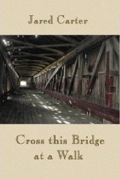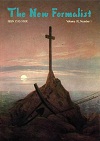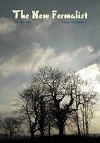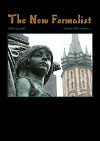Imitation is the highest form of literary flattery. Aspiring poets imitate until they can establish a voice of their own or reach a point where the whole business of being “a poet” no longer seems attractive or worthwhile. Today such aspirants are more plentiful than ever because of the emergence of graduate-level MFA farms in which, by and large, legions of spoiled rich kids learn how to workshop McPoems, to network, and to kowtow to their betters for future payoffs.
If they are truly ambitious they will lay down the books of contemporaries like C. K. Williams, Heather McHugh, or (fill in some other contemporary star’s name), and they will begin to read real poets, perhaps W.B. Yeats, Wallace Stevens, T.S. Elliot, or even Rainer Maria Rilke, but not in the original. Americans are too lazy and stupid to learn languages, especially one as politically incorrect as German. They’d rather read foreign poets in translation. Hence the phenomenon of coattail hangers like Robert Hass, or butchers like Robert Bly, both of whom have built careers on the genius of others.
In “Photographing Eden,” Jason Gray’s first full-length book, he aspires to be Rilkean, but lacks the deep hard-earned humanity, the spiritual insight, and the splendid ear of the great Austrian poet. He has achieved only mushy pseudo-metaphysical workshop exercises that offer a MFA holder’s lightweight concept of epiphany. (There is no dark night of the soul in which Pascal, having just escaped death, might proclaim: “Fire. God of Abraham, God of Isaac, God of Jacob, not of the philosophers and the scholars…”) And, no doubt, not of the MFA holders.
Sometimes his attempts are ambitious because they are rhymed and metered, but invariably they read like imitations after Stephen Mitchell’s bland translations, which, doubtless, are all that Mr Gray knows of Rilke’s verse.
In “The Snow Panther” his tin ear comes to the fore. Written in three couplets, the poem ends before it begins, leaving nothing in the psyche but gratitude for its brevity. Here I quote from the middle couplet:
“Beyond his cage his thoughts are sharp and white;
he lives a compelled anchorite.”
The intelligent reader must pose a question. How can a cat, let alone a religious ascetic, “live a compelled anchorite”? An anchorite is one who voluntarily withdraws (anachōreō) from the world. We can also use poetic license and even say “he lives, a compelled anchorite.” Alas, in Mr Gray’s line the comma is missing.
Despite the glaring error this poem was printed in the August 2000 issue of Poetry, and subsequently reprinted in this book, the publisher of which is Ohio University Press. It’s hardly a surprise to find out that Mr Gray’s current employer is Ohio State University Press. Granted, not the same publishing house, and yet one must not question the utility of networking.
Did the MFA degree pay off, or is it an embarrassment, like a diploma acquired at the circus, or a go-down given by an ambitious bawd after too many drinks?



